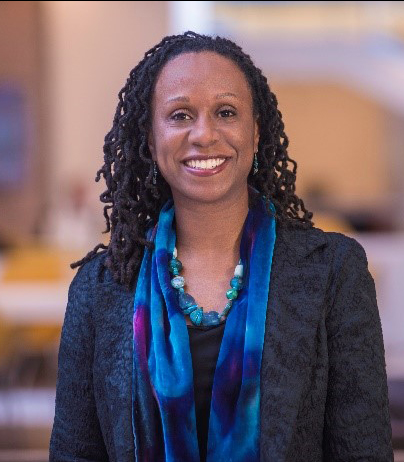 Camille A. Nelson
Camille A. Nelson
Dean and Professor of Law
American University Washington College of Law
Surprisingly, there are few opportunities as a dean to ascertain student engagement, insights, and concerns in a manner that is comparative, data-driven, and longitudinal. LSSSE presents an opportunity to intentionally harness student-derived and student-driven data in service of the aspirations of one’s law school community, and to ensure a continuous drive for excellence in a marketplace for legal education that is relentlessly competitive.
As we are often simultaneously seeking to improve metrics, especially those reported to outside entities, while ensuring the maintenance and embrace of core values in service of a shared vision, such data and information is extremely helpful. While it is not easy to move all of the needles at once, the LSSSE survey provides a good deal of information from our students as we try to improve our schools in ways that help us better serve and support our students and alumni. Having such student-centric data from our students, combined with the information on how similarly situated schools are faring along comparable trajectories is important to our ability to recognize challenges and opportunities, and to be more diagnostic in our problem solving towards informed solutions.
As the students are the heart of any great law school, it is interesting, and unfortunate, that their views are seldom collected in durable ways that provide data over time for enterprise improvement. If we take “customer service” seriously, LSSSE appears to be one of the few, if not the only, mechanism through which to glean the holistic well-being and effective functionality of the law school as a student focused enterprise over time. For instance, despite the profound impact of the US News and World Report (USNWR) on legal education, there are no input variables that are student generated in the USNWR law school rankings from which to ascertain insight into the student experience, both specifically and comparatively.
Given the dearth of student generated data available to law school administrators and faculty, LSSSE is a helpful mechanism through which to learn, analytically, as opposed to anecdotally, about the student experience and organizational pinch-points. Deans need to learn of areas in need of trouble-shooting, especially areas that might encumber student success and well-being, or which impede the creation and maintenance of durable institutional good-will. So while I recognize that no tool is perfect, LSSSE data proves valuable in providing deans with the ability to study and assess, in protensive ways, areas that must be of importance to law schools, and legal education more generally.[1]
Some may bristle at the notion of customer service in an academic setting as inappropriately consumerist, perhaps fawning and misguided. However, for many of our students, and often their families, their monetary investment in graduate and professional schools, especially given rising tuition,[2] not surprisingly, nor unreasonably, enhances expectations for such a student facing and customer-driven focus. I empathize with the impetus for assurances along the lines of customer service — these are often fueled by increased debt loads and what some are calling a national student debt crisis.[3]
With an average annual tuition rate of $27,160 for public law schools and $47,754 for private law schools,[4] we should expect that our students want what some may view as more from us, but which may reasonably be interpreted as value for their dollar, and for their debt. For such outlays of money and the assumption of debt, would we too not do the same in every other space of personal investment and expenditure? Such expectations are especially the case in areas that bode well for student preparation for their professional opportunities, be that from wellness and counselling, to legal research, writing and the search for employment, skills that all intersect with and amplify doctrinal and substantive acumen.
In striving to be more of a data-driven dean, LSSSE can help. I look to LSSSE to help me/us improve both our appreciation of student feedback, and also to provide a basis upon which we assess our adherence to, and support of, core values we hold dear, starting with the embrace and uplift of our students.
[1] LSSSE data supports the opportunity to study various aspects of the law school experience, including how students utilize law school services, how they study, and what their employment goals are, and how it changes over time. LSSSE, http://lssse.indiana.edu/
[2] According to data compiled by Law School Transparency, average in-state tuition for public law schools in 1985 was $2,006, while average tuition for private schools was $7,526; by 2018, average tuition had risen to $27,160 and $47,754 respectively. Law School Costs, https://data.lawschooltransparency.com/costs/tuition/.
[3] Sandy Baum and Patricia Steele, Graduate and Professional School Debt: How Much Students Borrow (January 4, 2018). AccessLex Institute Research Paper No. 18-02, https://ssrn.com/abstract=3103250 or http://dx.doi.org/10.2139/ssrn.3103250; Kristin Blagg, Underwater on Student Debt: Understanding Consumer Credit and Student Loan Default (August 2018), https://www.urban.org/research/publication/underwater-student-debt/view/full_report; National Center for Education Statistics, The Condition of Education 2018 – Trends in Student Loan Debt for Graduate School Completers, https://nces.ed.gov/programs/coe/indicator_tub.asp; Federal Reserve Bank of New York, Research & Statistics Group, Quarterly Report on Household Debt and Credit, Q1 2019 (May 2019), https://www.newyorkfed.org/medialibrary/interactives/householdcredit/data/pdf/HHDC_2019Q1.pdf; Josh Mitchell, The Long Road to the Student Debt Crisis, Wall Street Journal, June 7, 2019, https://www.wsj.com/articles/the-long-road-to-the-student-debt-crisis-11559923730.
Robert Farrington, The 2020 Presidential Candidates’ Proposals for Student Loan Debt, Forbes (April 24, 2019), https://www.forbes.com/sites/robertfarrington/2019/04/24/the-2020-presidential-candidates-proposals-for-student-loan-debt/#394c0a20520e; Jacob Pramuk, Elizabeth Warren and 2020 Democrats Want to Erase Student Loan Debt – Here’s How It Could Affect the Economy, CNBC (April 23, 2019), https://www.cnbc.com/2019/04/23/elizabeth-warren-and-2020-election-democrats-propose-student-loan-relief.html Also refer to increasing conversation amongst presidential candidates about same.
[4] Law School Costs, Law School Transparency (2018 data, most recent available) https://data.lawschooltransparency.com/costs/tuition/.
Mega даркнет площадка, Mega ссылка, Мега даркнет сайт Мега даркнет площадка
